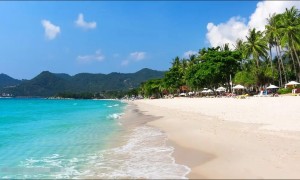British Prime Minister Theresa May took the blame for the Conservative Party's disastrous performance at last week's elections, as she faced her party's angry MPs on Monday, seeking to ward off any challenge to her leadership.
"I got us into this mess, and I'm going to get us out," May told Conservatives Members of Parliament during the meeting in Westminster, indicating that she would serve as prime minister as long as they wanted.
May's Conservatives unexpectedly lost their majority in parliament in Thursday's snap general election, causing political chaos ahead of Brexit talks with the European Union set to start next week and prompting calls – from within her own party – for her resignation.

British Prime Minister Theresa May (L) leaves 10 Downing Street for the 1922 Committee in London on June 12, 2017. /VCG Photo
May faced Conservative party lawmakers at a meeting of its 1922 Committee. Despite anger at the election, she was cheered briefly at the start of the meeting.
Lawmakers, who are by tradition not named at such meetings, told Reuters that there were no dissenting voices and that the party had no appetite for a leadership election.
May appeared contrite, sought to apologize for her failed election gamble and gave an explanation of what went wrong.
While some members of her party have said she will have to go eventually, May is expected to stay on as prime minister at least for now.
May has promised to start the formal Brexit talks next week but her authority has collapsed since the election result and opponents took her woes as a chance to push back against her Brexit strategy.

British Prime Minister Theresa May has brought her Conservative Party rival Michael Gove (pictured) into the government in a cabinet reshuffle. /VCG Photo
Crunch talks with DUP
May on Tuesday was heading into difficult talks with a hardline Northern Irish party on securing a working majority after the crushing electoral setback.
Coming off a bruising few days in which her future has hung in the balance, May will hope to secure a deal to prop up her minority government when she meets Arlene Foster, head of Northern Ireland's ultra-conservative Democratic Unionist Party (DUP), on Tuesday morning.
DUP leader Arlene Foster said there had been "positive engagement" so far. "We are going into these talks with the national interest at heart," she said on Monday.

Leader of the Democratic Unionist Party (DUP) Arlene Foster (L) stands with deputy leader Nigel Dodds during a news conference at Stormont Parliament buildings in Belfast, Northern Ireland on June 12, 2017. /VCG Photo
However, the prospect of a deal between the two parties has caused disquiet, with the DUP's anti-abortion and gay rights stance in the crosshairs.
More than 735,000 people have signed a petition in three days condemning the proposed alliance, saying it is a "disgusting, desperate attempt to stay in power."
The deal also prompted Irish premier Enda Kenny to warn that such an alliance could upset Northern Ireland's fragile peace.
In a phone call on Sunday, Kenny told May that forming a minority government reliant on the support of the hardline DUP could pose a "challenge" to the 1998 Good Friday peace accords.
London's neutrality is key to the delicate balance of power in Northern Ireland, which was once plagued by violence over Britain's control of the province.
May's office responded that the DUP deal "would provide stability and certainty for the UK going forward."
British Foreign Secretary Boris Johnson (R1) has denied that he would challenge Prime Minister Theresa May's Tory leadership. /VCG Photo
Defense Secretary Michael Fallon has also sought to downplay the DUP's future role, saying the government was not looking at a formal coalition but would seek assurances that the DUP would vote with May "on the big things."
The crunch talks could also force the delay of the government's presentation of its legislative program to parliament by Queen Elizabeth II, due on June 19. "Obviously until we have that we can't agree the final details of the Queen's Speech," said May's deputy, Damian Green, referring to an agreement with the DUP.
Changing position on Brexit
May will then travel to Paris for a working dinner with French President Emmanuel Macron before the two leaders attend a friendly football match between England and France at the national stadium in Paris.
The prime minister had hoped to be in the French capital with a strong popular mandate for a "hard" Brexit. Instead she finds herself weakened and isolated as she meets Macron, a 39-year-old neophyte who rode to victory in last month's presidential elections and is on course for a landslide victory in France's legislature.
Labour leader Jeremy Corbyn has said his party is ready for a new election. /VCG Photo
"Being seen to be the prime minister" could help "shore up her authority at home," according to Colin Talbot, professor of government at the University of Manchester.
It could also be the place for May "to change her position on Brexit," he added.
Since coming to power, May has advocated a "hard" Brexit, which would entail Britain leaving the European single market and cutting immigration from the bloc.
(Source: Reuters, AFP)



